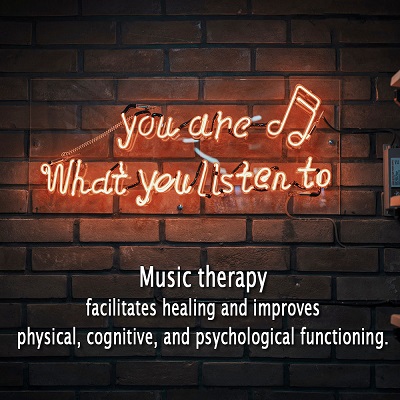 How many times have you felt down in the dumps and couldn’t be bothered doing anything? You probably can’t remember how many times, but it has happened to all of us and even once is too often. However, if you turn on some happy tunes, your mood can change fairly quickly.
How many times have you felt down in the dumps and couldn’t be bothered doing anything? You probably can’t remember how many times, but it has happened to all of us and even once is too often. However, if you turn on some happy tunes, your mood can change fairly quickly.
For many people, music is a regular part of their life. Without music, their life wouldn’t feel complete. Music can influence your mood. It can keep you pumped up to work or exercise, or just to stay positive and motivated. It can also connect with you when you are feeling sad. Some types of music can give you goosebumps and chills, and some can make you feel totally relaxed.
More than just affecting your moods, either negatively or positively, music can be used to provide many benefits to your health. This is called ‘Music Therapy.’
Music therapy is the use of music to influence changes in the body and facilitate healing. It is a non-invasive and integrative therapy that is now widely used to treat many health conditions.
To give a deeper understanding of what music therapy can do for your health and well-being, here are some of its benefits.
Relieves Stress, Anxiety, and Depression
Chronic stress is one of the top health problems seen today. Chronic stress causes much dis-ease in the body. Listening to music can lower the levels of the cortisol hormone and other stress-related hormones. That’s why listening to music can alter your mood, from being negative to more positive. When you are less stressed, your immunity becomes stronger too, which helps you fight off infections and illnesses.
Music therapy can help ease symptoms of anxiety and depression. Many people suffering from a health condition can also become very anxious and depressed. These feelings can interfere with not only their thoughts and behavior but inhibit their healing.
The mind is powerful and music therapy can affect the mind positively, so much so that this type of therapy may be just as powerful for easing anxiety and depression as anti-depressants can be.
Aids in Pain Relief
Music therapy can influence neurological processes and change your pain perception. Those who have chronic pain may find music particularly helpful in managing their pain. The music can make them feel that they have control over their pain and even helps to increase their pain threshold.
Cognitive Decline – Can Improve Quality of Life
Music therapy has been found to help improve the quality of life of people with people suffering from cognitive decline, such as memory loss, Alzheimer’s disease, and other forms of dementia. Music helps evoke memories, reduce agitation and frustration, improve physical coordination, and enhance communication.
Even if the music can’t bring back old memories, it can make new ones, even if the period of time remembered is short. That in itself is a great way to improve the quality of their life even if it is just for a minute or two.
Assist Recovery, Rehabilitation, and Communication
Recovery after an operation or an injury can be difficult and depressing. Music therapy is used in many rehabilitation programs today. It can improve your physical, cognitive, and psychological functioning while undergoing rehabilitation.
Music has been effective for people recovering from a stroke, helping them restore their ability to speak and communicate. Music therapy has also been shown to help communicate with those who have autism as it invokes better responses and interest among autists. It can help improve their verbal and nonverbal communication skills, as well as their social interaction, which can help them so much more in life.
Helps Provide Better Quality Sleep
This is one benefit you may have already tried! Have you ever played soft, rippling water-type music, or whales, or birds in a forest to help you feel calm and drift off to sleep? Having quality sleep is another key ingredient for a healthy life.
Music therapy can induce better sleep, helping you get to sleep faster, for a good number of hours, and with no disturbance. It is particularly beneficial for people suffering from insomnia, or those working nightshift hours.
Music therapy is a great integrative treatment for various conditions, from a mild mood swing to chronic pain. The effectiveness of this therapy depends on choosing the right music. Some types of music can cause agitation and increase irritation or feelings of depression, whereas other types of music can make you feel amazing!






